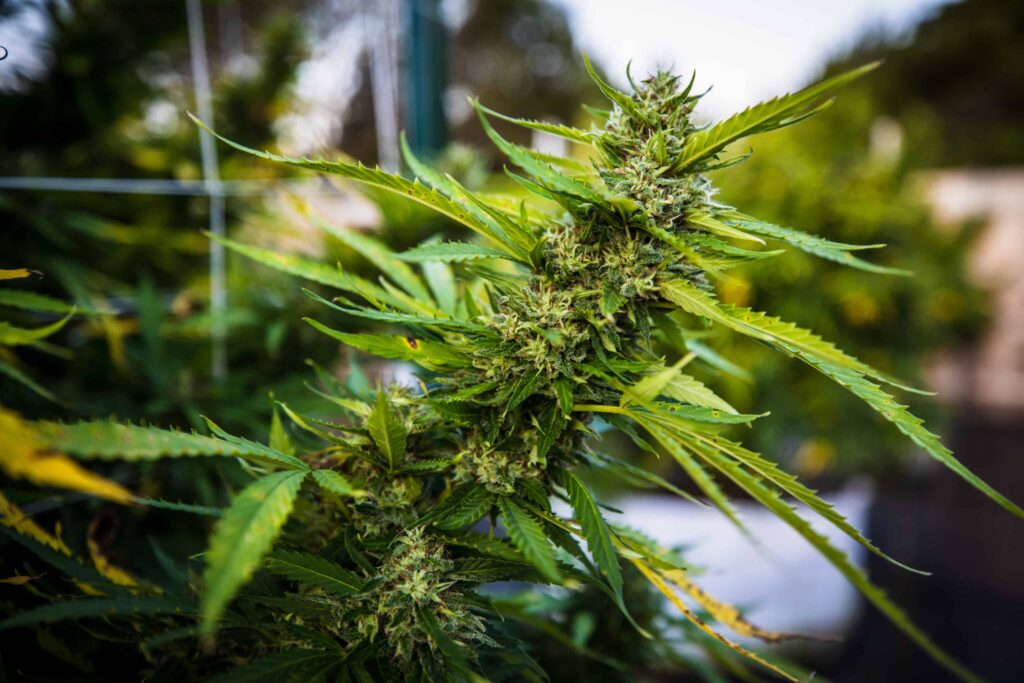
An official at the Department of Health and Human Services recommended to the Drug Enforcement Agency (DEA) that cannabis be reclassified from a Schedule I drug to a Schedule III drug under the Controlled Substances Act in a leaked letter.
HHS Assistant Secretary for Health Rachel Levine sent a letter dated Aug. 29 to DEA Anne Milgram, recommending that cannabis be reclassified. The HHS confirmed on Tuesday that a representative sent its findings to the DEA. “Following the data and science, HHS has expeditiously responded to President Biden’s directive to HHS Secretary [Xavier Becerra] and provided its scheduling recommendation for marijuana to the DEA on August 29, 2023,” an HHS spokesperson said.
The move was called “historic,” sent cannabis stocks soaring, but was also called insufficient in ending cannabis prohibition as it would remain a controlled substance, albeit with fewer restrictions.
Last October, President Joe Biden requested that the HHS secretary and attorney general conduct a review of the classification of cannabis under federal law. Cannabis currently falls under Schedule I, meaning the DEA considers it a drug “with no currently accepted medical use and a high potential for abuse.”
The DEA defines a Schedule III substance as “drugs with a moderate to low potential for physical and psychological dependence.” The DEA says that the potential for abuse of Schedule III drugs is less than Schedule I and Schedule II drugs—but more habit-forming than Schedule IV (Xanax, Valium) and Schedule V drugs (Robitussin AC). Examples of Schedule III drugs include pills and drugs with less than 90 mg of codeine per dosage unit (Tylenol 3), ketamine, anabolic steroids, and testosterone.
It’s important to note that under Schedule III, cannabis would still be federally prohibited although it would open doors for researchers. Some leaders in Congress applauded the move, while others said it’s not enough.
What Happens Now?
NORML reports that the HHS recommendation now heads to DEA, to conduct its own scientific review. The DEA adopted its own five-factor test to determine if cannabis should be rescheduled, and it’s different from the HHS’ criteria. But the DEA determined that cannabis failed to meet its five criteria four times.
“It will be very interesting to see how DEA responds to this recommendation, given the agency’s historic opposition to any potential change in cannabis’ categorization under federal law,” NORML Deputy Director Paul Armentano said. “Further, for decades, the agency has utilized its own five-factor criteria for assessing cannabis’ placement in the CSA—criteria that as recently as 2016, the agency claimed that cannabis failed to meet. Since the agency has final say over any rescheduling decision, it is safe to say that this process still remains far from over.”
Senate Majority Leader Chuck Schumer (D-NY) said in a statement that HHS had recommended that cannabis be moved from a Schedule I to a Schedule III controlled substance. “HHS has done the right thing,” Schumer said. “DEA should now follow through on this important step to greatly reduce the harm caused by draconian marijuana laws.”
Is Schedule III Enough?
“This is a step in the right direction but it is not sufficient, Congressman Earl Blumenauer (D-OR), founder and co-chair of the Congressional Cannabis Caucus said in a statement. “I hope it is followed by more significant reforms. This is long overdue.”
Cannabis coalitions applauded the move as historic, while it would not fully decriminalize cannabis at the federal level.
“The Biden Administration just took a major step toward ending our nation’s failed war on cannabis,” stated Adam Goers, co-chair of the Coalition for Cannabis Scheduling Reform. “For decades, cannabis has been a Schedule I controlled substance, on par with heroin and above fentanyl and meth. This was completely baseless, and we now know that the FDA and Department of Health and Human Services agree.
“The federal government is now on track to recognize cannabis as medicine, regulated alongside Schedule III drugs such as Tylenol with codeine which have demonstrated medical uses and low risk of abuse. Our ultimate goal is full legalization of cannabis, and we believe that rescheduling is a key step on the way there.
Cannabis Stocks Soar
The news impacted cannabis trading. ETF.com reports that the AdvisorShares Pure US Cannabis ETF soared 21%. Other cannabis-related funds, including FMG Alternative Harvest ETF and Global X Cannabis ETF were up 10.79% and 7.44% respectively. Eight cannabis-related ETFs are traded on U.S. markets, with total assets under management of $630.76M.
Publicly traded cannabis companies also saw spikes based on the news. Canopy Growth rose 13%, Tilray Brands soared by nearly 9%, and Aurora Cannabis rose by 6%.
Read full article on High Times

